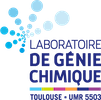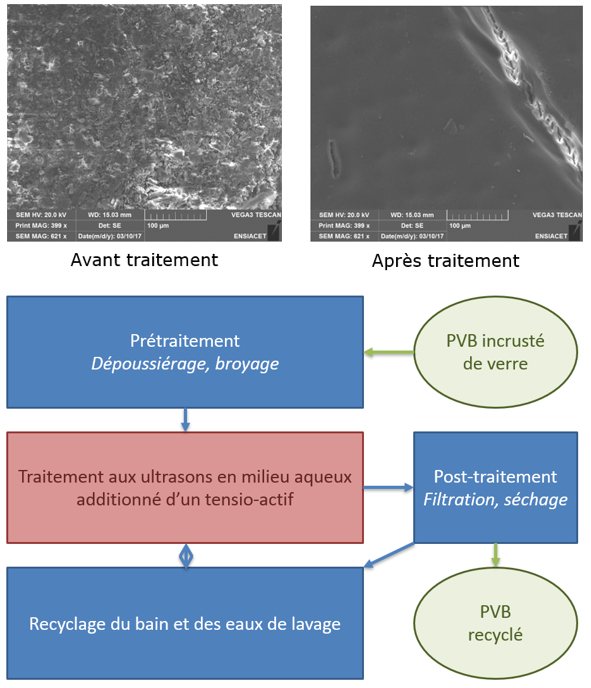Sustainable & digital engineering
Industrial Decarbonisation & innovative processes
Process for producing high-quality recycled PVB
Content created on
PVB is a component of laminated glass (car windscreens, glazing, etc.), the recycling rate for which is currently very low. Tens of thousands of tonnes of PVB are produced each year from end-of-life glazing and are generally landfilled.
COMPETITIVE ADVANTAGES
- Process carried out in an aqueous medium with dilute reagents that are non-toxic, non-flammable and at low temperatures
- Equipment commonly used in industry
- Easy recycling of the reaction medium
- Method transferable to industrial scale
APPLICATIONS
- Automotive
- Architecture
- Photovoltaic cells
- Paints/Adhesives
- Cosmetics
INTELLECTUAL PROPERTY
- Expertise
- Patent
DEVELOPMENT STAGE
Laboratory validation of the technology
LABORATORY

- LGC
Description
A process consisting of detaching and/or loosening the glass splinters fixed to the PVB collected after crushing the glass parts.
Combined and complementary action of ultrasound and the effect of a surfactant added with a base at a suitable temperature not causing degradation in the polymer matrix.

Technical specifications
- Glass content after treatment: Undetectable
- Scale-up of the process carried out in the laboratory: 100g -> 1kg
- Estimated industrial cost of recycled PVB: < €1/kg



